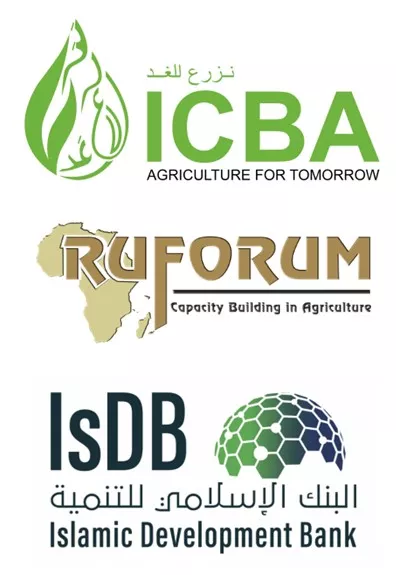Improved land and water management practices and use of simulation models for increasing agricultural production in Sub-Sahara Africa
The African continent is the second largest in the world after Asia, with a total land area of about 3025.8 million hectares (ha). About 22% of Africa’s total land area is under forests and woodlands, while 66% is covered by arid zones and deserts (IFAD, 2010), including the world’s largest deserts, the Sahara and the Kalahari. Arable land constitutes about 630 million ha, representing about 50% of the world’s arable land and supporting most people’s livelihoods.
Most of Africa’s land resources are experiencing increasing trends in degradation due to overexploitation and poor resource use. Over the last decade, SSA experienced the worst land degradation globally, accounting for 22% of the total global annual cost of land degradation, amounting to 300 billion US dollars (Nkonya et al., 2018). The most severe degradation has been encountered in Africa’s grasslands, where 40% have been degraded, followed by 26% of the forestlands and 12% of croplands.
Increasing water demand and decreasing water quality has put enormous pressure on agriculture to reduce its share of water consumption by adopting improved water management practices. In the water-scarce environments, such as in the SSA region, the challenge is to increase the productivity of agricultural water use without compromising on crop yields and developing soil salinization. Therefore, better management of land and water resources is a key to sustainable agricultural production and ensuring future food security for the rising population.
Applying a particular irrigation strategy depends on the local conditions, such as climate, soil, plants, water availability, and traditional irrigation management. Dynamic simulation models that can calculate soil water and solute transport originating from all water resources in combination with crop growth are the best tools to provide a rapid, flexible, and relatively inexpensive means of estimating the effects of various irrigation management practices on crop production under a variety of climatic and physical conditions.
Learning Objectives and Outcomes
ICBA, with support from the Islamic Development Bank and in collaboration with the Regional Universities Forum for Capacity Building in Agriculture (RUFORUM), Uganda, is organizing a four-day training program on “Improved land and water management practices and use of simulation models for increasing agricultural production in Sub-Sahara Africa.”
In this training, participants will learn about new ways of managing water in agriculture to control soil salinity and improve agricultural production. The training will help participants understand soil-water-plant relationships and their role in improving plant growth and soil salinization. By the end of the training, participants will be able to:
- Understand the soil-water-plant relationship.
- Differentiate between irrigation management techniques.
- Understand how salt-affected soils develop.
- Understand the improved farming practices for increased crop production.
- Use of simulation models for irrigation management.
- Utilize improved practices for fertilizer, weeds, and pest management.
- Calculate crop water requirements and irrigation schedules for different climatic conditions using field and global data sets.
- Understand Irrigation management for salinity control.
- Calculate leaching requirements for salinity management.
تنظيم
International Center for Biosaline Agriculture (ICBA), Dubai, United Arab Emirates
In collaboration with
Regional Universities Forum for Capacity Building in Agriculture (RUFORUM), Kampala, Uganda
Supported by
Islamic Development Bank, Jeddah, Saudi Arabia
المحاضرون
Dr. Asad Sarwar Qureshi, Senior Scientist – Water and Irrigation Management, ICBA, UAE
Dr. Zied Hammami, Agronomist, ICBA, UAE
Dr. Zied Hammami, Agronomist, ICBA, UAE
منسق التدريب
Mr. Ghazi Al-Jabri, Capacity Development Specialist, ICBA, UAE









